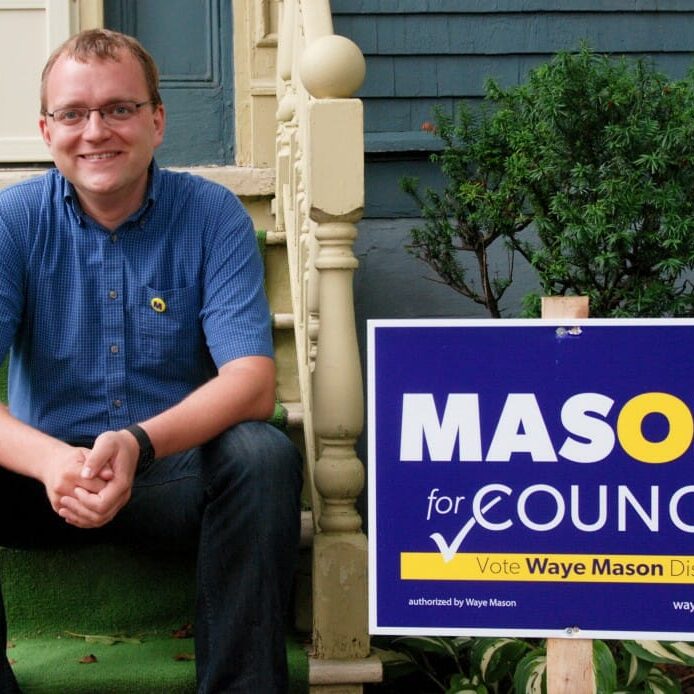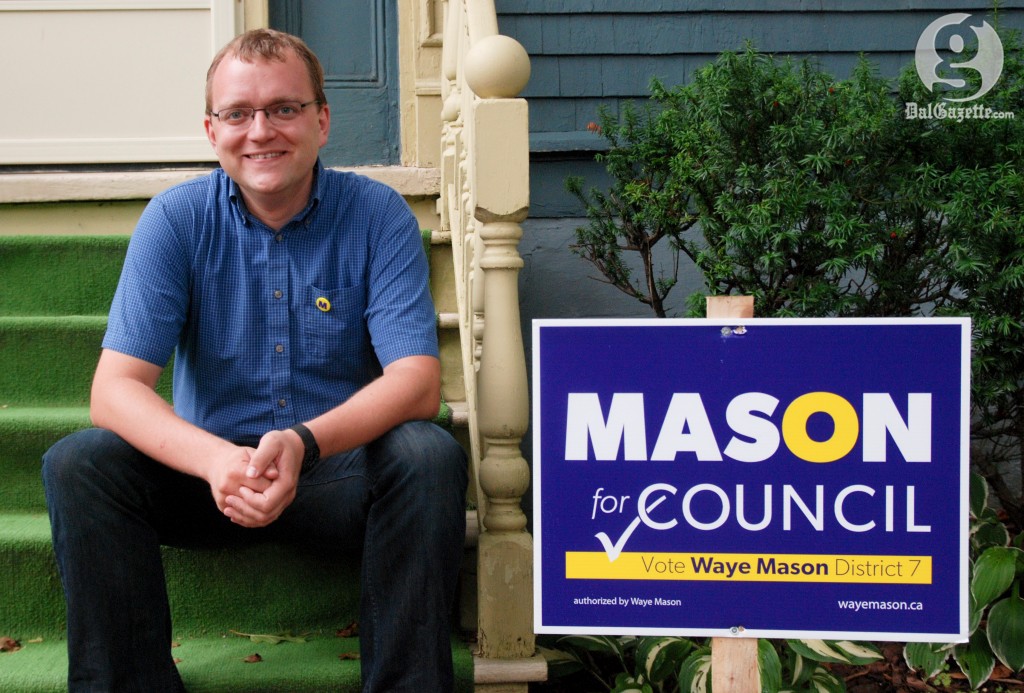
Two weeks ago, we brought you the Dawgfather. This week we’re interviewing another candidate for city council running in district seven: Dalhousie alumnus Waye Mason. Mason currently teaches music business at NSCC. He was also one of the founders of the Halifax Pop Explosion and currently serves as the chairman of the festival’s board of directors.
Dal Gazette: What is necessary to make city council more transparent?
Waye Mason: What it comes down to is that you need councillors not willing to go in-camera and who understand when something needs to go in-camera and when it’s just done for the convenience of staff.
My personal favourite is that if you ask the legal department, “can we be sued for this,” really the answer is almost always yes. So the question now then is, “are we likely to be sued for this and will we lose.”
A lot of the stuff they’ve been going in-camera for has been because council hasn’t been following its own rules or policies and they’re turtling up to protect themselves from lawsuits.
Waye Mason on how to develop downtown Halifax:
DG: How exactly would you like to see tax money spent?
WM: This new district seven is going to generate about one in five residential and commercial tax dollars and it’s not seeing anywhere near that level of investment in the infrastructure around downtown. I know it sounds trite and tacky but downtown and the peninsula really is the goose that lays the golden egg.
Now all that money doesn’t belong, as a right, to the residents of the district, but we’re not investing sufficient money for downtown, Spring Garden Road, the university areas, and the roads going in and out of the downtown area.
DG: So then how exactly would this be done?
WM: One of the things that we’ve talked about a lot in this election that I totally support is community councils having more powers. So, you’d have a council in the peninsula or maybe Halifax downtown community with three members, and the idea is that that part of the tax revenue generated in that area would then be invested and controlled by that community council.
Waye Mason on public transit in Halifax:
DG: What do you think of the current transit system?
WM: It stinks. I bike to the ferry every day and take the Woodside ferry every day and I’ve come out really strong in favor of transit reform. I think it’s one of those things that we talk, pretty much to death, about.
DG: So what can we do?
WM: We’re going somewhere on the commuter rail plan which was first presented in 1992-1993 when I was a student at Dalhousie, and I went to that meeting and I was so excited, and 20 or 21 years later it’s still the same plan.
Waye Mason on how the election will play out:
WM: The students shouldn’t underestimate the impact that they can have on this election. Do I think 8000 students are going to vote? I do not think that, but I really wish they would. What I do think though is that if five or six or seven hundred students get out and vote, educating themselves and voting for someone who supports their issues, that could really change the election
Last year only 4,600 people voted in this district, so students can have a lot of power and I hope they embrace the chance to make Halifax a better place.
Waye Mason on students:
DG: Have you been on the campuses much so far?
WM: Well I live just right around the corner. I think the councillor for district seven, especially now that it covers all the universities on the peninsula, should have a meeting with the presidents of the student unions after they’ve been elected in the spring and they should be known on campus, at least to a limited degree. If you look at the numbers in residence and in the area, there are well over 20,000 and the councilor needs to be a much more active ambassador and be available to talk to the Gazette and be available to talk to student leaders.
DG: Why do you think the students wouldn’t go to polls?
WM: Well, election laws were not interpreted until the last election to allow students to vote, and then there was a lot of good work done by student activists who forced the issue and finally the NDP government changed the provincial law to allow students to vote and now here we are and hopefully students will vote.
That being said, when the registration for electronic voting was Aug. 24 and they refused to put polls on campus at SMU or Dal for physical voting, it’s now very hard for most people.
The polling station for Dalhousie is at LeMarchant St. (Thomas) School, which is just… Like guys, it’s just one block away. Let’s do this.
DG: How do you feel about tuition in Nova Scotia?
WM: Well I’m glad that its started to go down finally from it’s all time high. Look, I went to Dal when our tuition doubled. Students don’t want to hear how low tuition was for me but we watched students in the ’90s go from being able to make enough money by working minimum wage all summer and living at home to dropping out of school because their parents never thought they’d have to pay that kind of money for them to go to school.
Tuition is a barrier; it creates a socio-economic divide between who can afford to go to university and who can’t. It’s unfortunate that… No, not unfortunate… It still drives me crazy how high tuition is. It’s not acceptable.
This interview has been edited for clarity and length.







